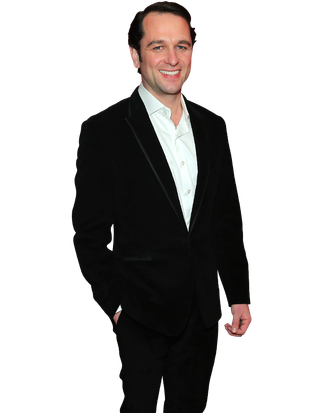
Can this possibly end well for Phillip Jennings? He’s a KGB spy who’s fallen in love with both America and his assigned wife (Keri Russell), a fellow undercover spy who still believes in the cause. “It’s a roller coaster watching them figure all that out,” says The Americans’ Matthew Rhys. The fact that they have two kids only complicates matters. “The ever-present threat of something happening to his children comes to the forefront and brings out a softer side to him, but he still has to kick the shit out of people. It’s like every actor’s dream.” Vulture caught up with Rhys, best known for playing Kevin Walker on Brothers & Sisters, to talk about his research for the role and reliving the eighties.
What have you learned about these KGB operatives who lived here as Americans for so long?
There were a lot of them here. One of the more surprising things I learned in doing research for the role was that they used to go to Canada first to acclimate, sometimes for a couple of years, and then they’d come to the U.S. I love that they’d acclimate there! Then they’d show up here pretending to be Americans going, “How about that, eh?” Yeaaaah, you’re not from here!
How did you get involved with the show?
[Series creator] Joe Weisberg saw me in a play I was doing in New York, Look Back in Anger, and he asked me to audition.
What did you find interesting about it?
It was the marriage at the center. When you find the two of them, they’re at this incredibly complex turning point. They’ve been in this arranged marriage, solidified their operative identity by having kids, and then all of a sudden, my character starts having real feelings for her. At the same time, his political leanings are changing while hers remain hard-lined. He’s falling in love with her, but he’s saying, “Look, let’s defect,” and she’s saying, “Uhhh, no.”
Will there be different missions each week for them?
Yeah, that’s the beauty of it. They’re still being given operations to carry out. Philip can’t just stop. He has to toe the line a bit. But he realizes their undercover life has an expiration date, and then what happens to their kids? So the more dangerous the operations become, the more he can go to Elizabeth and say, “See? This ain’t good.”
Brothers & Sisters filmed in Los Angeles, but now you’re shooting in New York. Was there any kind of transition for you?
Well, it’s a little harder in New York. It’s not as forgiving to a film crew. You hold up a bunch of New Yorkers who can’t cross the street, they’re not going to take it well. Southern California? They’ll wait. It’s cool man. In New York, they’re like, “Are you kidding me? I gotta get to work. Fuck you!” The other day I was doing a driving scene and I blocked some guy’s gate, and he’s like, “You can’t fuckin’ park here!”
And you’re shooting with Margo Martindale, who is in everything now. Can you talk about how she’ll come in?
She’s the contact between the KGB and us, and she’s so great. The gravitas she brings, I mean, when she fixes you with a stare, you’re like, Oh my God. Even I’m going, Wow, this is really serious. It’s a tricky part to nail down, this mercurial transient character that comes in and out, dropping these bombs on them. She just does it with such realism, she grounds the whole thing really.
Have you enjoyed getting to go back to the eighties?
You sort of trip down memory lane a lot. Even though there are a lot of American references in this, acid-washed jeans were global. One of your greatest exports.
You have to wear those?
I do. Poor Keri Russell takes the brunt of the eightieswear. She’d crack her chin with the top of her gun, the waists are so high. The younger people on the crew, the young PAs, I hear them going, “God, such a weird period piece.” And I go, “Shut up. Shut up, kid.” It was yesterday.
The spy gear must really shock them.
They bring this stuff out and even I think, Is this from the 1940s? You forget. But that lends itself to the series. It was more about human ingenuity at that time and not about high-tech computers and cameras. That stuff brings out a comedic element, too, I think. That and the cars. You drive these cars that are like boats. You have to start steering a week before you want to turn.
Did you have an opinion on whether or not Felicity should have cut her hair?
I’ll be honest. I didn’t see it. I’ve been coming to L.A. since I was 24, like all the Brits do for pilot season, so I was very aware she was this big deal with big hair. That show was a real phenomenon. I can tell you now that she’s awful. I mean, she’s fine when she’s sober, but that’s so rare.
Keri said you were drunk when you first met years ago.
I was pretty drunk. It was a Sunday afternoon!




